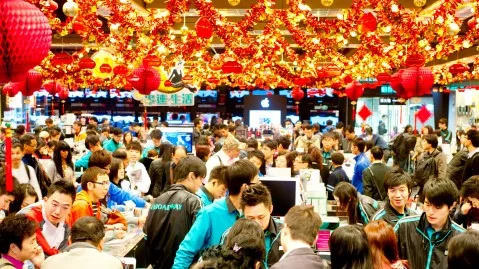
China’s 618 shopping festival to dictate retail sector’s fortunes: report
Businesses are counting on the festival to invigorate the sector.
As Chinese authorities lift the months-long lockdowns in Beijing and Shanghai, the success or failure of the 618 shopping festival in the country from 1 to 18 June will dictate the fortunes of the retail sector, according to a report from GlobalData.
The stringent lockdowns in Beijing and Shanghai, driven by the outbreak of the COVID-19 Omicron variant in the cities, caused a debilitating impact on consumer livelihoods and the economy, according to GlobalData’s consumer analyst Bobby Verghese.
Factories and businesses came to a standstill after losing its workers, while. Consumer demand also took a hit for both online and offline stores, as customer footfall in physical retail stores waned with people confined to their homes, whilst online retailers were unable to make deliveries due to supply chain disruptions, he said.
“Subsequently, e-commerce giants Alibaba Group and JD Retail reported heavy losses in Q1 2022 and the following two months, with international luxury brands, including Bulgari, Zara, Lancôme, and Uniqlo taking the biggest hit,” Verghese said.
Manufacturers and retailers are counting on the 618 shopping festival to unleash pent-up demand and reinvigorate the flailing retail sector, but coming out of the lockdown, consumers are rationalizing their spending on non-essentials, fearing a recurrence of COVID-19 outbreaks and lockdowns, GlobalData said.
Moreover, supply chain instability and liquidity crunch can profoundly impact consumer and business sentiment in the country, Verghese said.
As such, GlobalData projected that after a strong run in 2020 and 2021, China’s retail channel will lose steam in 2022 with a spillover effect in 2023. The home retail category will particularly bear the brunt of the consumer fiscal austerity.
Verghese noted that China's transition to a consumption-oriented economy will help online retail play a pivotal role in the post-COVID-19 recovery of the economy.
“However, the e-commerce industry, which is reeling from the government’s crackdown on technology giants since late 2020, can ill afford the stringent pandemic control measures of the government’s ‘Zero COVID’ policy,” he said.



















 Advertise
Advertise







